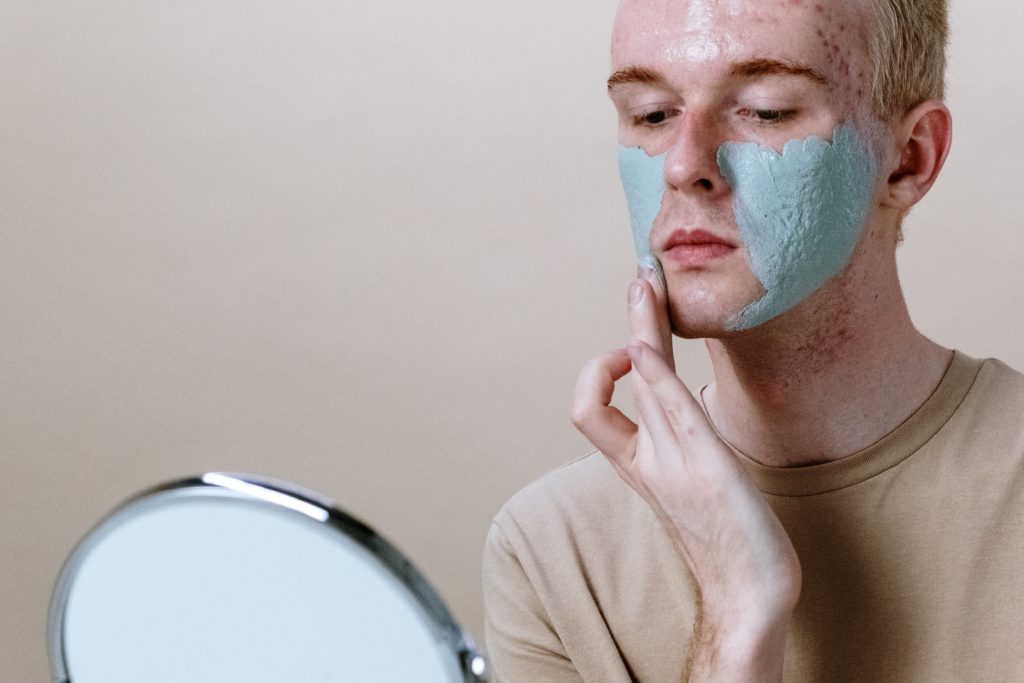Hormonal dysfunction is most often mentioned in the context of women’s health, but it can also occur in men. The most common causes of hormonal disorders in women are premenstrual syndrome, pregnancy, and menopause. In contrast, the most common disorder in men is the sex hormone testosterone, which is secreted in the testicles and affects almost the entire condition of the body.
What are hormones?
Hormones are products of secretions of the endocrine glands of the organism. They can be divided into hormones:
- that have a regulatory function (metabolism, salts, water, carbohydrates, lipids, and proteins),
- that play a role in controlling the growth and development of the organism,
- and hormones that have an integrative property, which means that more hormones act on regulating one function or one organ.
Hormone secretion is largely related to the nervous system. Its work affects the state of hunger, infection, trauma, physiological stress, and the process of sexual reproduction.
As you can see, hormones affect almost every aspect of health, both mental and physical, so maintaining their balance is very important. Unfortunately, very little is needed for an imbalance to occur.
Common symptoms of hormonal disorders

1. Mood swings, anxiety, and depression
Hormonal imbalances can cause sudden mood swings and anxiety, especially during menstruation and menopause. Estrogen levels fluctuate continuously throughout the 28 days of the cycle, from the first to the last menstrual period. Women with reduced estrogen secretion are more prone to emotional stress. Sufficient estrogen secretion is thought to reduce the harmful effects of stress hormones.
On the other hand, men with low testosterone levels also experience mood swings. Research shows that men with inferior levels of testosterone are more likely to face depression, irritability, or lack of concentration. Unlike women who undergo a rapid decline in hormone levels at menopause, men experience a gradual decline in testosterone levels over time. The older a man is, the more likely he is to experience a drop in normal testosterone levels.
2. Belly fat and permanent weight gain
Since hormones are directly related to body weight, hormonal imbalances can make it much harder to lose extra pounds. High levels of cortisol, estrogen, and insulin combined with low testosterone and dehydroepiandrosterone (DHEA) lead to belly fat deposition.
On the other hand, excess belly fat can activate the secretion of other hormones that further compromise the endocrine system’s normal function.
Also, the lack of thyroid hormones slows down the metabolism, which leads to the deposition of fat deposits and the appearance of excess weight.
3. Loss of muscle mass
Growth hormones help us gain good muscle mass and build muscle. A lack of hormones can affect our ability to keep that mass strong.
The pituitary gland secretes growth hormones that stimulate tissue growth. These hormones react with insulin and directly affect muscle mass.
However, in men, testosterone also plays a role in building muscle, so men with reduced testosterone secretion may notice a loss of muscle mass. Studies have shown that testosterone affects muscle mass but not muscle strength or function.

4. Fatigue
Chronic fatigue can exist with excessive and prolonged mental or physical exertion, with insufficient sleep and rest for an extended period. In this case, the chronic feeling of fatigue is a normal reaction of the organism to the lack of rest and sleep.
If you are not exposed to prolonged mental and physical exertion and get enough sleep, but you still wake up sleepy and tired, there is probably a weakened thyroid function. A reduced amount of thyroid hormones leads to a slowing down of all body metabolic processes, manifested by appropriate symptoms.
Chronic fatigue, in this case, occurs due to insufficient energy production to perform everyday activities. A constant feeling of drowsiness and the need for frequent and prolonged periods of rest usually follow it. Over time, these symptoms can add to more, such as feelings of lethargy, dissatisfaction, etc.
Men with low testosterone often have extreme fatigue and decreased energy levels. Reduced testosterone may be the reason why you are tired all the time, regardless of whether you have enough sleep or enough motivation for various activities.
5. Sweating
The problem with excessive sweating is a common hormone disorder. Hormones control our body temperature, and if something is wrong with them, excessive sweating occurs. However, these are usually harmless disorders that pass relatively quickly and do not cause severe symptoms.
6. Memory problems
If you frequently forget where you left something, the cause may be a hormonal dysfunction. A drastic drop in hormones in menopausal women most often leads to heedlessness and confusion. Stress hormones can affect brain function and lead to decreased concentration and memory impairment. Reduced estrogen levels can also affect memory and concentration problems, and elevated cortisol negatively affects short-term memory.
7. Hunger attacks
Leptin and ghrelin are the essential hormones for controlling hunger. When we eat leptin, it reduces our appetite; however, ghrelin increases our appetite and makes us feel hungry after a meal. Frequent hunger attacks indicate an imbalance of these two critical hormones. Another essential factor that can cause a hunger hormone disorder is sleep. Insufficient and quality sleep leads to obesity.

8. Digestive problems
Stress is harmful to our health because it affects the activation of certain hormones. Estrogen and cortisol affect the gut microflora when we are under pressure.
Healthy bacteria in the digestive tract and a good, healthy diet reduce this response of the organism to stress. Also, many hormones secreted by the ovaries are responsible for premenstrual cramps and bloating. These symptoms are much more robust in women with irritable bowel syndrome.
9. Insulin secretion disorder
Insulin is one of the most significant hormones in our body. It is responsible for controlling carbohydrate metabolism, provides cell growth and renewal, and directs energy through the whole body’s metabolic pathways. The most common symptoms of this hormone disorder are frequent and strong thirst, frequent urination, poor circulation, itchy skin, dry skin, slower healing of wounds on the body, blurred vision, fatigue, bad breath reminiscent of acetone. Healthy living habits and regular check-ups can prevent the disease from developing or progressing further.
10. Headaches and migraines
Many factors can lead to severe migraines and headaches, such as stress and fatigue. However, the hormonal factor is a significant cause of severe migraines and headaches in many women. These headaches occur when the level of estrogen stabilizes. Oscillations in estrogen levels are thought to cause the secretion of chemicals directly responsible for the onset of headaches.

11. Acne
Acne and pimples are usually associated with hormones for a good reason. Although acne occurs due to clogged pores on the skin, when it comes to their infection, doctors believe that the leading cause of acne is hormonal in nature. Low levels of androgenic hormones can worsen the acne situation.
12. Weak sex drive
Since the ovaries secrete sex hormones, any disorder in their secretion and function affects libido. Estrogen boosts sex drive, while progesterone lowers it. Monthly oscillations of these hormones drastically affect sexual desire. When progesterone levels are elevated, sexual desire decreases.
In men, testosterone plays a key part in libido, i.e., sexual desire. Some men may experience a decrease in sexual desire as they get older. However, men with reduced testosterone levels are also likely to experience a drastic drop in sexual desire.
If you notice any of the mentioned symptoms, you may want to visit your chosen doctor or specialist (gynecologist, urologist, endocrinologist) to determine whether you suffer from a hormonal disorder.
They will help you learn what you are suffering from, give you adequate therapy, and help cure hormonal imbalances.


0 Comments